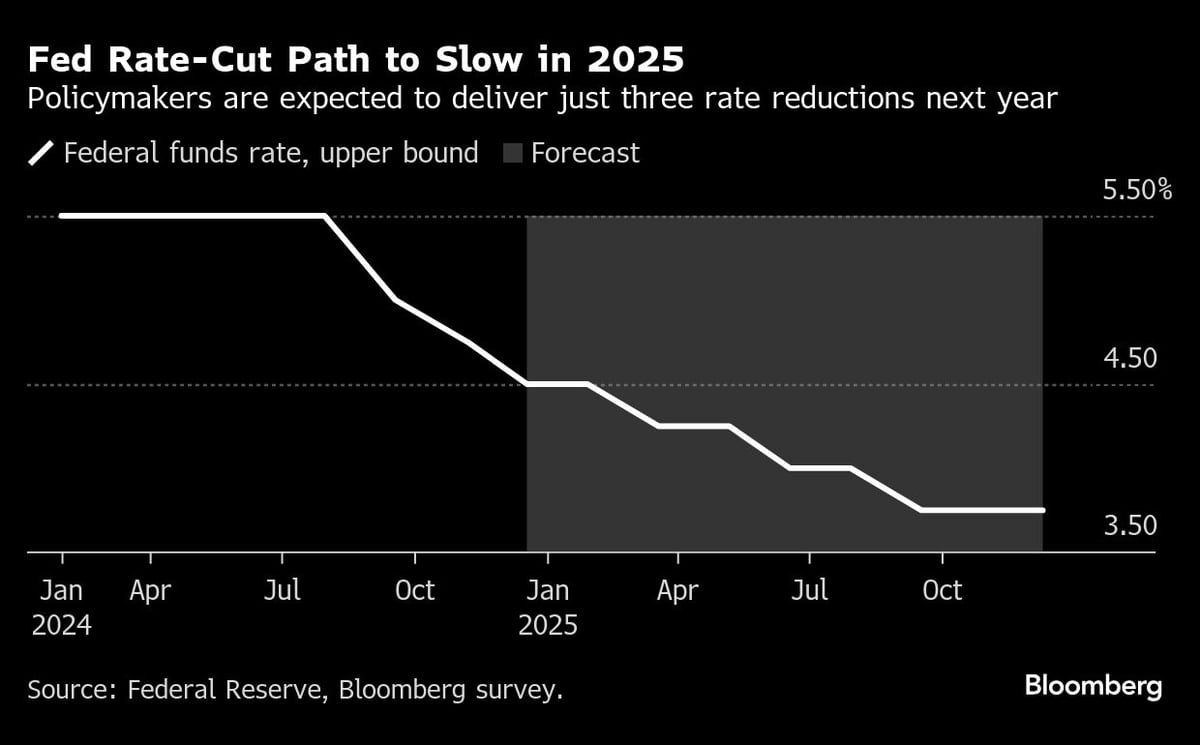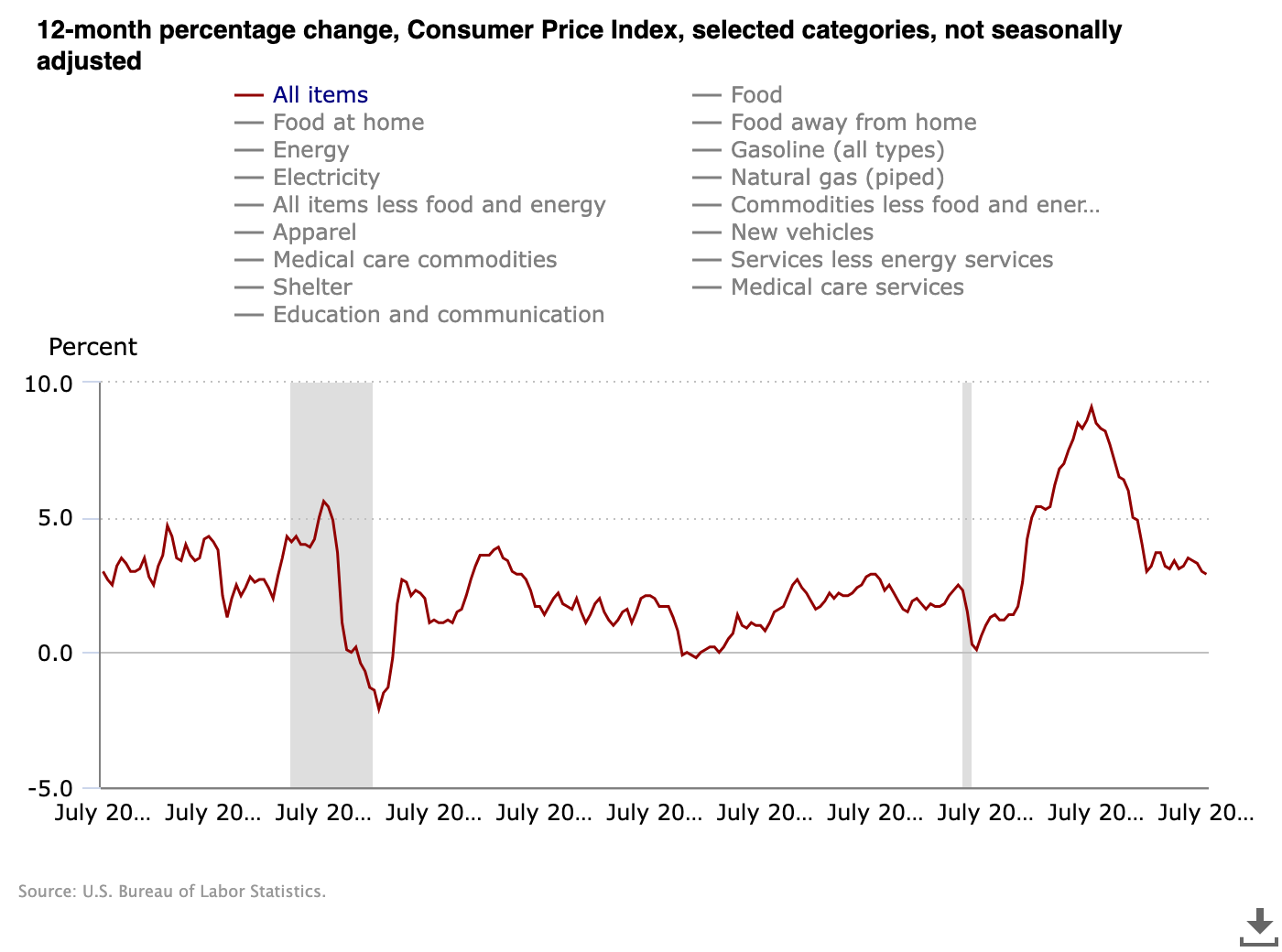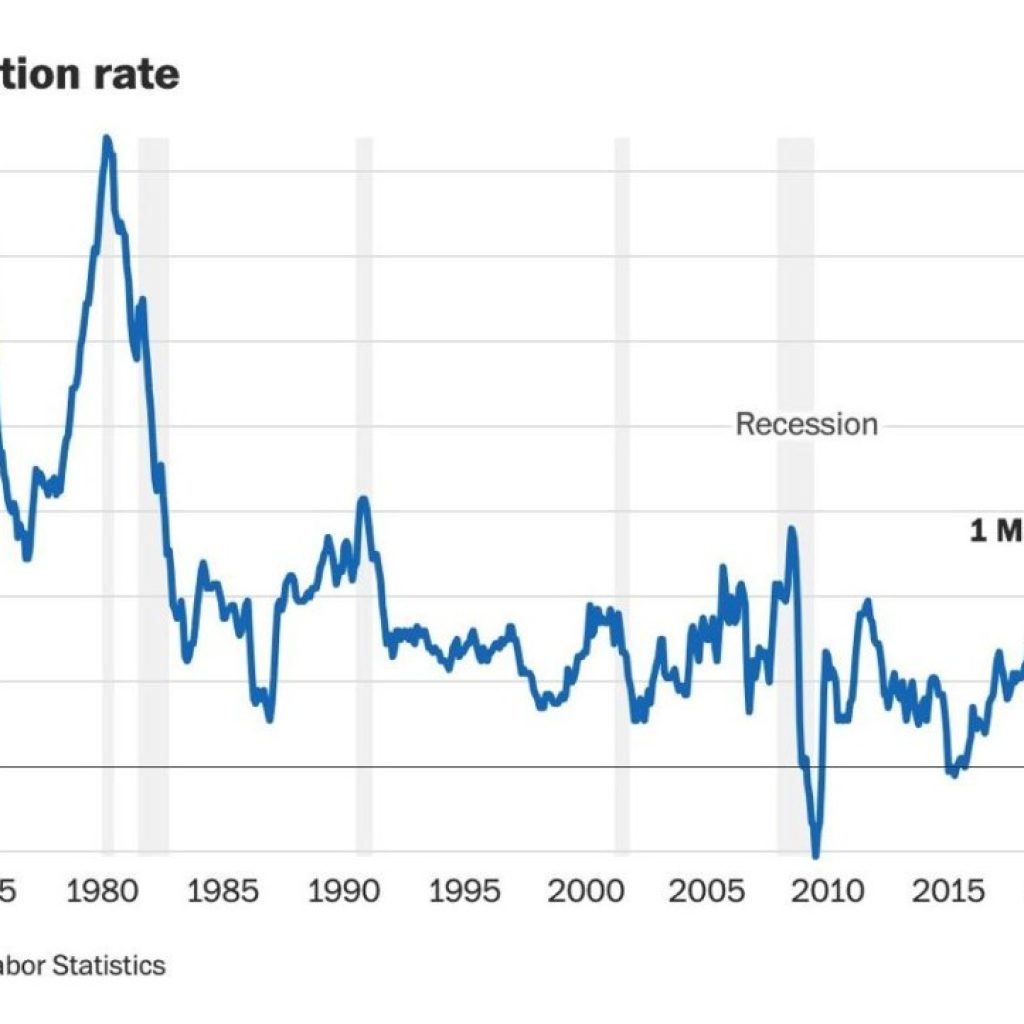Analysts forecast a final interest rate reduction from the Federal Reserve this Wednesday, but the real focus is on whether the central bank will adjust its expectations for 2025. Inflation remains sticky, but the job market is showing resilience, and policymakers are uncertain about the path ahead.
Federal Reserve officials are expected to reduce interest rates for the third consecutive month, with economists surveyed by Bloomberg forecasting another quarter-point cut at the upcoming December 17-18 meeting.
The cuts would bring the central bank’s key benchmark rate down to a range of 4.25% to 4.50%, marking a cumulative one percentage point reduction since September. Alongside this move, the Fed is expected to scale back its projections for the number of rate cuts in 2025.
The Federal Reserve’s 2024 rate cut
Per a recent Yahoo news report, investors are keeping tabs on the Fed’s quarterly “dot plot,” a chart where each Federal Reserve official projects the future direction of the federal funds rate. This tool helps businesspeople keep track of the Fed’s monetary policy stance and insights into the central bank’s thinking.
In September, the dot plot showed that the Fed expected to reduce rates twice more in 2024, followed by four additional cuts in 2025. However, recent inflation data and cautious comments from officials have led some to question the viability of these projections.
These uncertainties are amplified by the possible impact of new government policies under the upcoming Trump administration, which will complicate the Fed’s decision-making process.
Loretta Mester, former president of the Cleveland Fed, told Yahoo Finance that the forecast for four cuts in 2025 may need to be revised. Mester suggested that a “slowing down” of the pace of rate reductions next year is likely, with two or three cuts appearing more realistic. This shift is being debated, as some economists believe the Fed will still adhere to its original plan.
“The story overall is they still expect inflation to come down,” said Luke Tilley, chief economist at Wilmington Trust. Tilley believes the median estimate for 2025 will remain at four rate cuts, reasoning that Fed officials continue to view rates as restrictive and still anticipate inflation will moderate.
Federal Reserve Chair Jerome Powell has allowed room for a more cautious approach if necessary. In early December, Powell noted that “we can afford to be a little more cautious” in light of stronger-than-expected economic conditions.
Powell’s comments suggest that while the Fed is likely to continue with a measured pace, it is prepared to adapt its stance based on emerging data.
Inflation and job market resilience test Fed’s 2025 projections
The potential for a revision in the Fed’s 2025 policy outlook is largely influenced by two developments in late 2024. First, the job market showed no significant signs of weakening, continuing to support consumer spending and economic growth. Second, inflation has proven more persistent than many expected, failing to show consistent signs of easing toward the Fed’s 2% target.
The latest inflation data released by the Bureau of Labor Statistics showed a 2.7% increase in the Consumer Price Index (CPI) for November, up slightly from October’s 2.6% year-over-year gain.
Core CPI, which excludes volatile food and energy prices, rose by 3.3% for the fourth consecutive month. Wholesale prices also climbed more than anticipated in November, suggesting inflationary pressures are not yet fully abated.
Despite these inflationary readings, markets are betting heavily on a rate cut this week, with traders now assigning a 95% probability to a 25-basis point reduction. Many expect the Federal Reserve’s 2025 forecast will remain largely unchanged, despite the recent inflation data.
Tilley of Wilmington Trust maintains that the Fed will stick with its projection for four cuts in 2025. He believes the central bank will focus on the labor market’s volatility while also factoring in recent inflation trends.
Tilley remains particularly concerned about the labor market, where private sector job growth has slowed significantly. He predicts job creation will drop to an average of 100,000 positions per month in the coming months, which he views as a potential risk to the broader economy.
Wilmington Trust’s bond portfolio manager, Wilmer Stith, also believes the Fed will continue with its original plan for 2025. Stith anticipates Powell will highlight progress made in tackling inflation, particularly with regard to shelter prices and other components of the CPI.
Stith views a 25-basis point rate cut as almost certain this week and expects Powell to emphasize that the Federal Reserve is moving closer to its inflation target.
Fed officials remain divided on the 2025 outlook
Richmond Fed President Tom Barkin has expressed optimism about the inflation outlook, suggesting that inflation will continue to decrease in 2025. Barkin attributed recent flat core inflation readings to tough year-over-year comparisons and expects inflation data in early 2025 to appear more favorable due to higher base numbers from the previous year.
Similarly, Chicago Fed President Austan Goolsbee pointed to the significant drop in inflation since it peaked at 9% in 2022, the highest level in four decades. Goolsbee remains confident that the Fed will reach its 2% target over time, reinforcing the Fed’s commitment to returning inflation to sustainable levels.
However, Mester is less optimistic about 2025, cautioning that recent inflation data and potential fiscal policy shifts could force the Fed to reconsider its rate-cutting plans.
“I think there’s going to be a rethink about what that appropriate policy path may have to look like next year,” Mester remarked.
While Mester expects a rate cut this week, she anticipates a pause in January, as the Federal Reserve will likely reassess the economic landscape heading into 2025. The current economic environment presents a delicate balancing act for the Federal Reserve: it must navigate stubborn inflation while avoiding triggering a recession, given the mixed signals from the labor market.
From Zero to Web3 Pro: Your 90-Day Career Launch Plan





